A Space-Starved Brooklynite's Best Home Organization Advice: Get Rid of Your Stuff
Out with the old — but not so much in with the new. It’s become tradition to harness the optimism of the new year to get organized. But before you run out to the nearest Container Store or dream up a space-saving closet system, consider the top six insights from this studio-dwelling minimalist. Growing up, I…
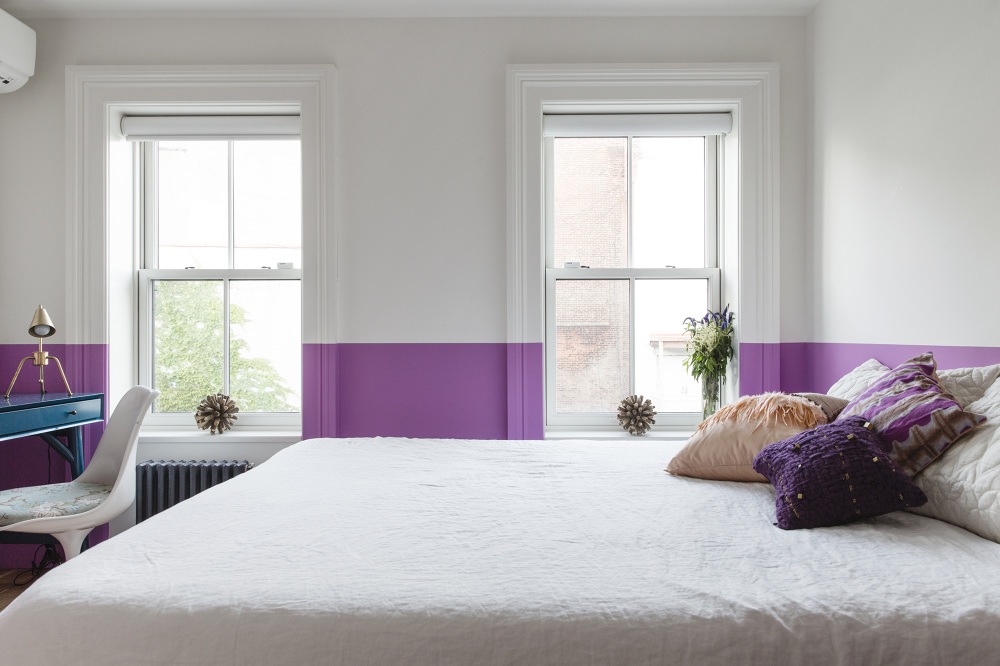
Out with the old — but not so much in with the new.
It’s become tradition to harness the optimism of the new year to get organized. But before you run out to the nearest Container Store or dream up a space-saving closet system, consider the top six insights from this studio-dwelling minimalist.
Growing up, I was actually a pack rat. But city life taught me a number of invaluable lessons. Here are a few of my favorites:
1. You don’t actually need that much stuff.
Or space, for that matter. In seven years of living in cramped city rooms, I’ve learned to live with less. For me, the benefits are worth it.
My rent is cheaper because I live in a small space. I can also move to a new apartment by putting my stuff in the trunk of a cab. I adore every possession I have.
This time of year, I’m especially thankful for the benefit of being able to organize all my things in just a couple of hours.
I’ve found the less I own, the easier it is to keep organized, and the better I feel about my home. If there’s one rule to make organization more manageable and effortless in a small space, it’s getting rid of as much as you can stand.
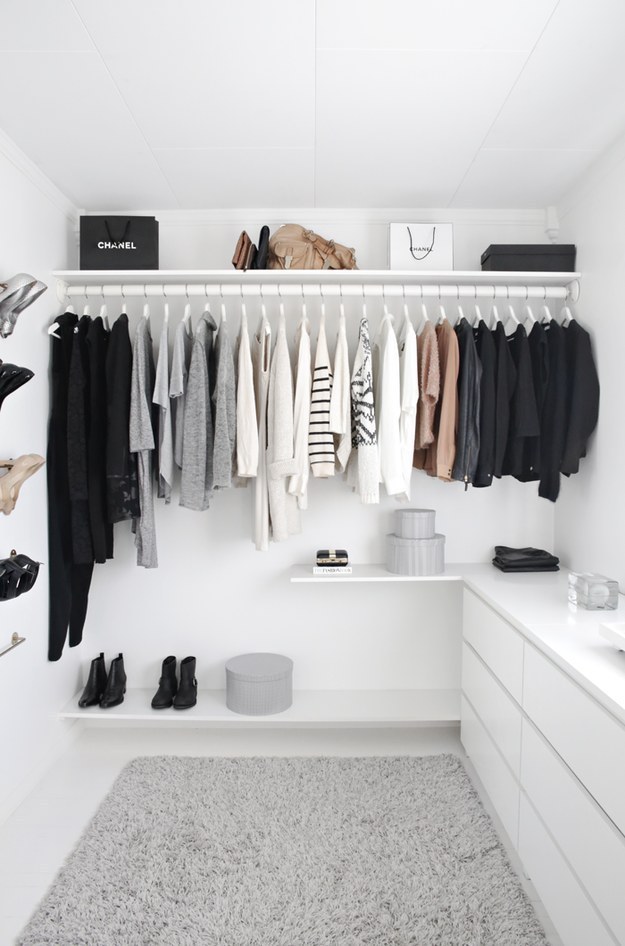
2. But you do need enough clothes to make the laundry manageable.
For everyday garb, I own three pairs of pants and seven shirts. That means I have to pop by the laundromat every week. If I’m feeling lazy, I’ll wash a few items by hand to make my clothes stretch for a few more days.
At one point I had just one pair of jeans and three shirts for my workwear. It was not enough.
But even now, the worst part is my clothes never fill a washing machine on their own. So I end up doing my partner’s laundry every week to optimize the wash cycle. Always being the one who does the laundry can at times provoke mild feelings of resentment.
But if this is the worst drawback I feel for owning less than the average American, I’m probably good.

3. Paper is more trouble than it’s worth.
Books? I have five on a shelf. My phone has the rest.
Christmas cards? I appreciate them for the month of December and then I take a picture and recycle the card. The same photography technique works for other sentimental but useless objects. That way I keep a reminder of what the object meant — but without the clutter.
Filing cabinets are black holes of unnecessary items. I’ve found I’m better off without them. Any forms or paper I do need can be easily digitized with my phone.
A couple of years ago, I spent hours digitizing notes and resources from my grad school days. Have I ever looked at those meticulously scanned insights? Nope. Same goes with my digitized tax returns and health insurance mailings. But I’ll keep the files in the cloud just to be safe.
Now, as soon as I get a letter or other piece of paper at home, I try to process and recycle it right away.
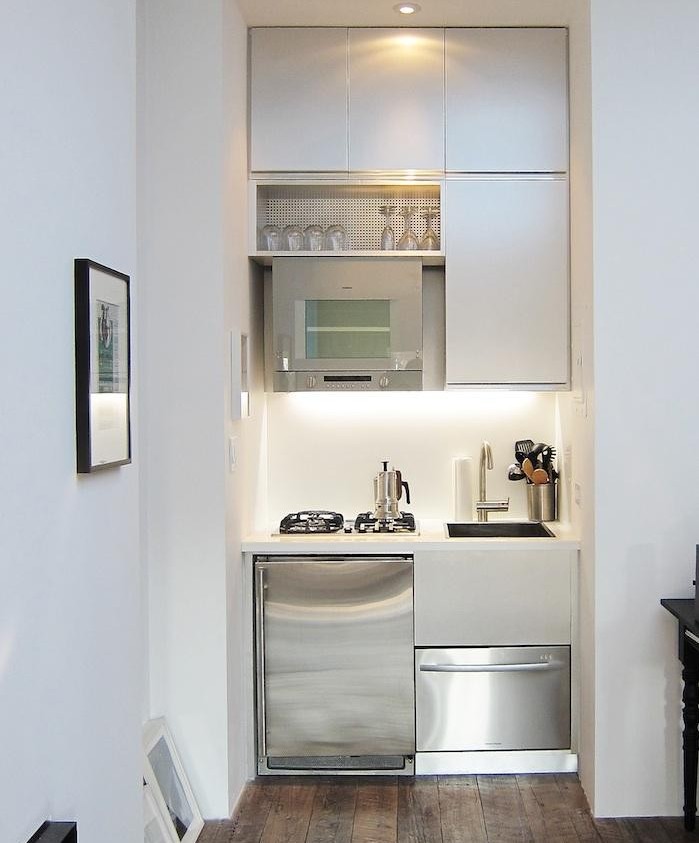
4. Nagging a partner to get rid of stuff has the opposite effect.
It just doesn’t work. I’ve found the most successful way to get a roommate or partner to get organized and clutter-free is to be organized myself.
Mere weeks after I stopped nagging my spouse to get rid of his books, unworn clothes, and miscellaneous electronics collection, he miraculously took decluttering into his own hands. Since moving into our studio, my husband has eliminated more than half of his previous possessions — and he recently digitized an entire archive of family photographs.
5. Avoid complicated, convertible multipurpose furniture.
This will probably be controversial, but in my experience, murphy beds, expandable tables, and tricked-out transforming apartments are more trouble than they’re worth.
When I still lived with roommates, I formulated a grand plan to outfit my meagre seven-by-nine-foot bedroom with a futon mattress on the floor that folded up into a storage bench that doubled as a desk. After a few weeks living with a mock-up version, I realized I left the bed open 90 percent of the time. So I ditched the transformer plan and just stuck with the bed.
Rather than rely on complicated arrangements, it’s better to create a simplified space optimized to meet the majority of use cases.
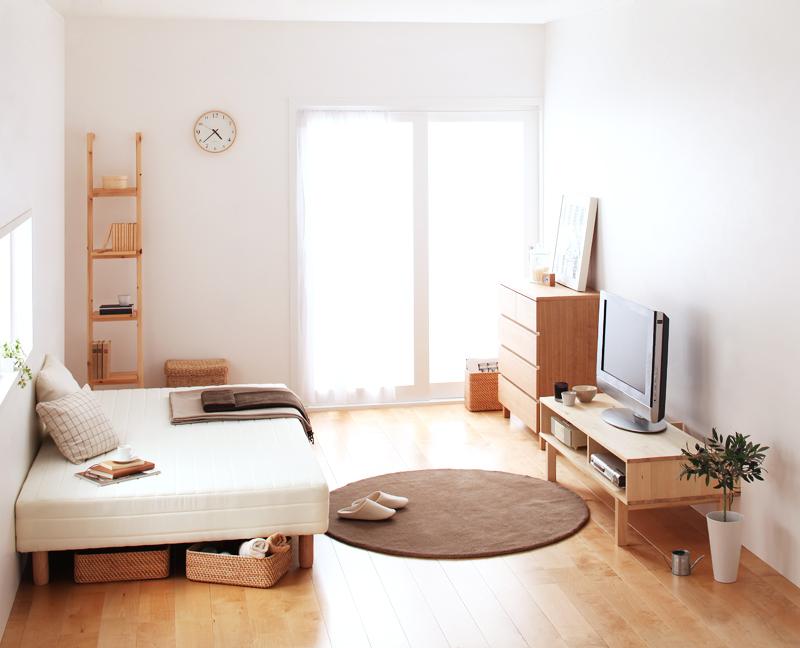
6. Cultivate hobbies that don’t require equipment.
I used to be a painter. When I had enough time and inspiration, I’d lay down a canvas drop cloth, set up my collapsible easel and break out the brushes and oil paints. It was glorious. But I did this — at most — a handful of times a year. When I wasn’t painting, the equipment took up nearly half a closet shelf.
At first, the prospect of giving away my painting things was scary — it felt like I was abandoning a part of my identity.
But I got just as much joy and inspiration from sketching in a notebook with a pen. And those tools fit easily in my purse. So out went the painting supplies. And I haven’t felt the loss.
Reading, photography, public speaking, long walks — all these activities can be enjoyed with a minimum of required tools.
What organization and de-cluttering strategies have worked for you?
Related Stories
5 Interior Design Trends That Will Be Big in 2016
Once-Bland Brooklyn Heights Home Now Wows With Wallpaper and Period Details
Dream of a Sweet Retreat in This Backyard Brooklyn Writer’s Pavilion
Email tips@brownstoner.com with further comments, questions or tips. Follow Brownstoner on Twitter and Instagram, and like us on Facebook.
[sc:daily-email-signup ]
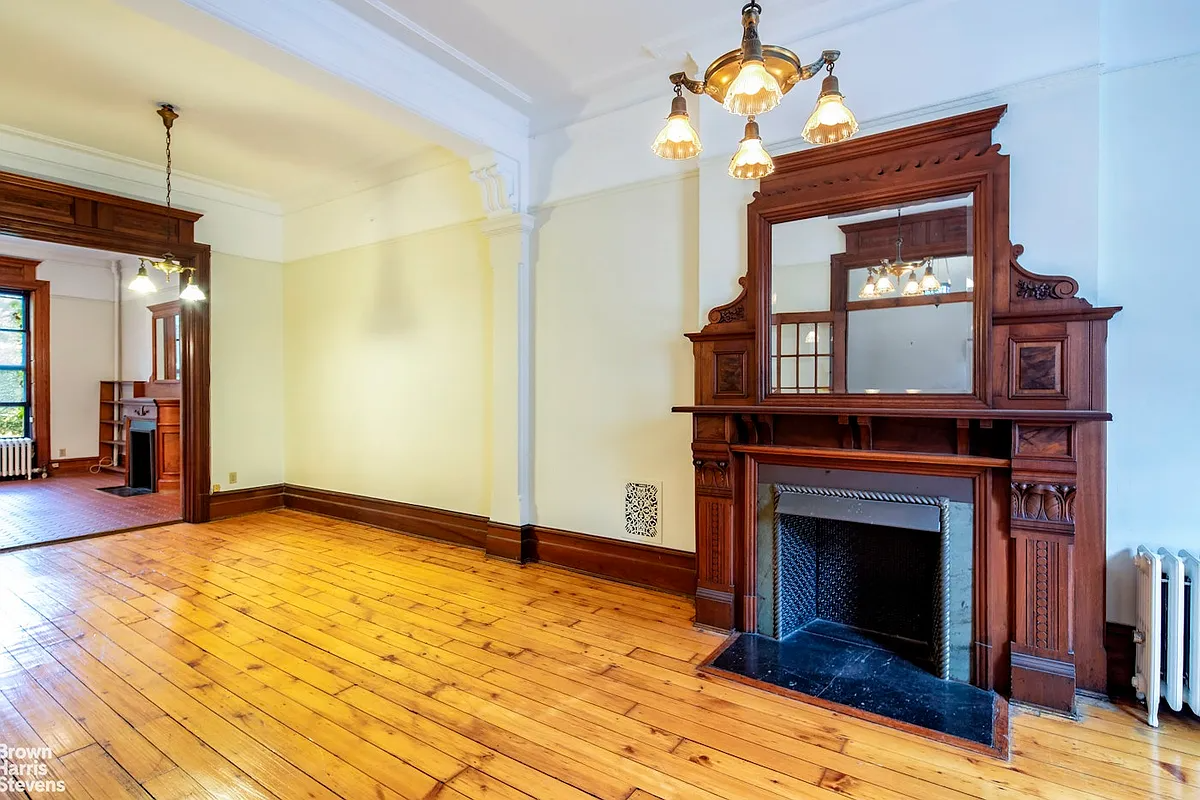


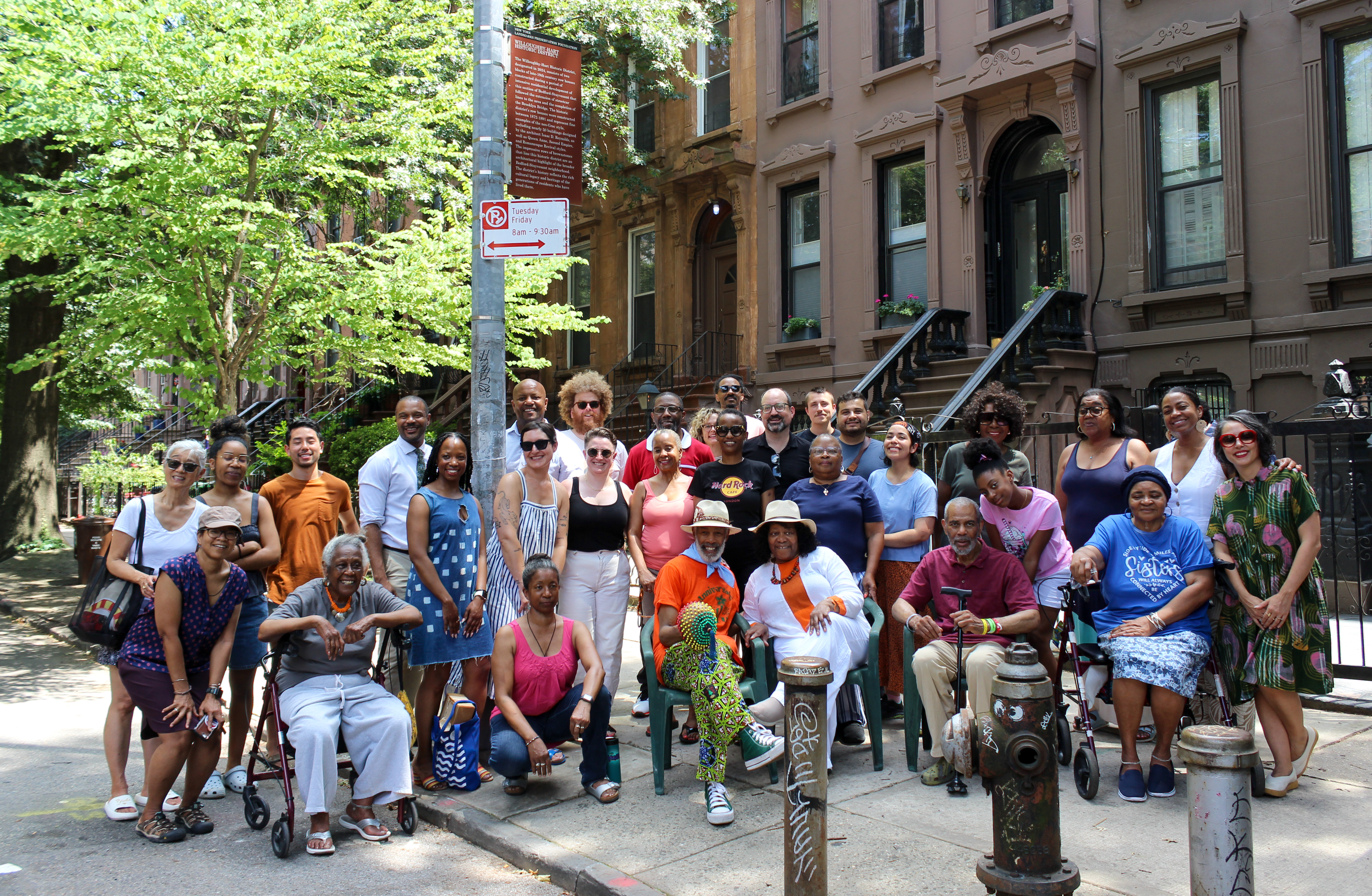
Great article! Thanks for sharing how you have put this into practice in your own life. Really good ideas for simplifying your life and making smaller spaces work better.
I think you should let yourself paint and make a mess again.
For reference style books printed books still beat a kindle I feel. I’m a big kindle fan so do “understand the technology” – as I’m sure does the OP. Take for example a travel book: it’s a lot easier to find and browse the section about the region you are in rather than do a kindle search and get every single mention of that particular spot in a very long and confusing list. It’s also easier to flick back and forth to adjacent pages to see what else is around you. Ditto with how-to books or textbooks: Flicking to a well worn section in a real book to review something is much easier than navigating through obscure list and menus. Not to mentions Kindles OS is clunky when it comes to handling notations and bookmarks. If you’re not convinced yet, there’s always this – if someone walks into your house and there’s not a single book anywhere, they will think you are a moron.
Why include photos that aren’t of your home? It’s misleading. That said, I think it’s too sad that you gave up an artistic endeavor as wonderful as painting to spare yourself some clutter.
PWND
He’s now curating a walking stick collection.
You can do key word searches and e-books and not only locate the reference you were looking for but any other time that word or idea or subject might’ve been referenced. You just don’t understand the technology.
To bad there isn’t a computer function that allows for searching your all of your digital files with a couple of clicks.
Great point, delepp. Another option is setting your screensaver to pull from a folder of family pics